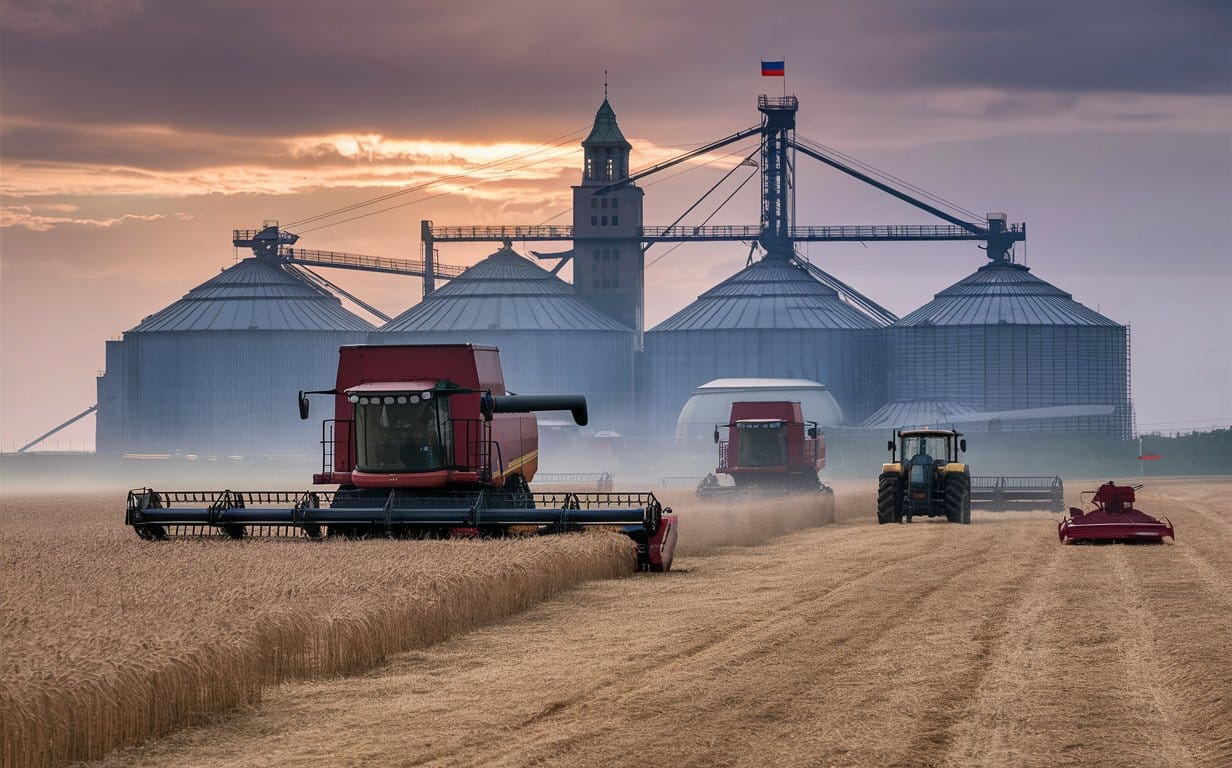In an intriguing twist within global grain markets, Russia is doubling down on consolidating its control over its pivotal grain industry, providing it with substantial leverage over international wheat exports. As wheat prices surge, traders should take note of Moscow tightening its grip on this essential commodity.
Major Western agribusinesses such as Cargill Inc. and Viterra exited the Russian market last year under governmental pressure, paving the way for local firms to step in. Interestingly, even top private traders in Russia, such as TD Rif now rebranded as Rodnie Polya LLC, are facing challenges from the state. This consolidation narrows the market to a few key players, many with close ties to the Kremlin, amplifying Moscow's influence over global wheat supply originating from the Black Sea terminals.
This consolidation escalated following President Vladimir Putin's controversial invasion of Ukraine. Currently, only four enterprises account for three-quarters of Russia's grain exports from these critical terminals. This strategic control assists Russia in curbing global food inflation by managing wheat supplies. However, it also complicates foreign traders' ability to gather accurate data on grain flow, especially amidst unfavorable weather conditions impacting Russia's wheat harvest and unnerving the market.
"Russia's ambitions to dominate the global commodity market are becoming more evident, and their influence over grains is increasing," said Dan Basse, president of Chicago-based consultancy AgResource.
The sentiment is shared across the industry as government actions become more assertive. Cargill, Viterra, and Louis Dreyfus Co. had ceased their grain export operations in Russia last year. TD Rif, historically significant in propelling Russia's agricultural might, now sees its operations threatened, with accusations of regulatory overreach and governmental pressure to sell.
Such moves are part of a broader pattern of state intervention in the economy, particularly since the onset of the conflict in Ukraine. Assets owned by local oligarchs and overseas companies, ranging from pasta manufacturers to units of French yogurt maker Danone SA, have either been nationalized or earmarked for sale to Kremlin-favored entities. The Russian government has additionally targeted agricultural assets linked to nations deemed "unfriendly."
“As Russia’s policies become more hardline and conservative, state intervention in the economy inevitably strengthens,” commented Andrei Kolesnikov, senior fellow at the Carnegie Endowment for International Peace in Moscow. “The state is solidifying its role as the dominant player in the economy.”
For international traders, getting pertinent information on Russian crop volumes, conditions, stockpiles, and exports has turned challenging since these firms adjusted their business dealings. Issues such as drought and frost have led to significant cuts in production estimates, driving wheat futures to the highest levels since July and stirring concerns regarding escalating food prices.
The International Grains Council predicts a 6% drop in Russia’s wheat output this year. This uncertainty is compounded for entities like the US Department of Agriculture, which, lacking on-the-ground staff in Russia, must rely on satellite imagery that might not capture full damage extent.
Despite these market fluctuations, benchmark wheat prices, though elevated recently, remain about 50% below their 2022 peak when the Black Sea supply chains were most disrupted. Improved prospects for US crops could temper supply concerns somewhat.
A primary focus now is how Russia’s deepening control over its grain sector will impact global markets. The nation is already setting unofficial minimum prices for its crops, with tighter sector control facilitating greater governmental influence over supplies. As Dmitry Rylko, director of Moscow-based consultancy IKAR, noted, there has been "dramatic market consolidation" with four major traders now handling a significant majority of exports.
The big question looming over the market: Will Russia's grain consolidation help stabilize global food markets, or will it create new volatility given the unpredictable nature of geopolitical influences? The potential for additional disruptions remains an ever-present concern for traders closely watching these developments.


